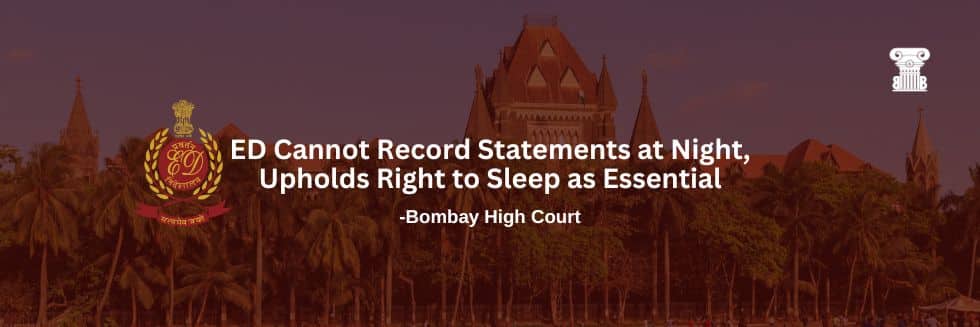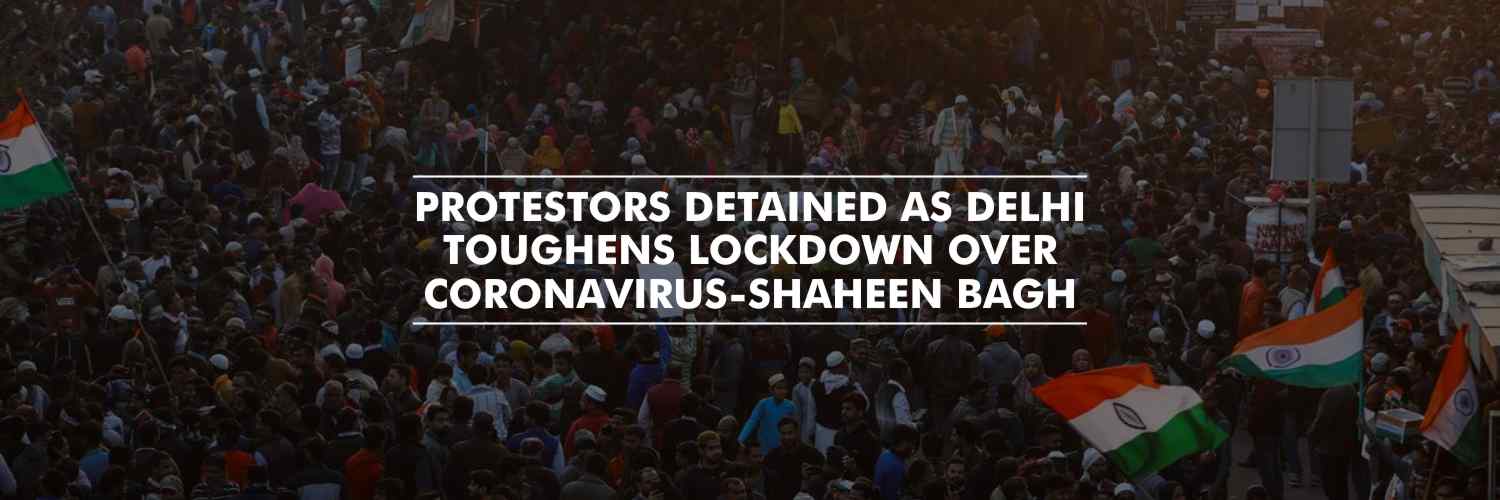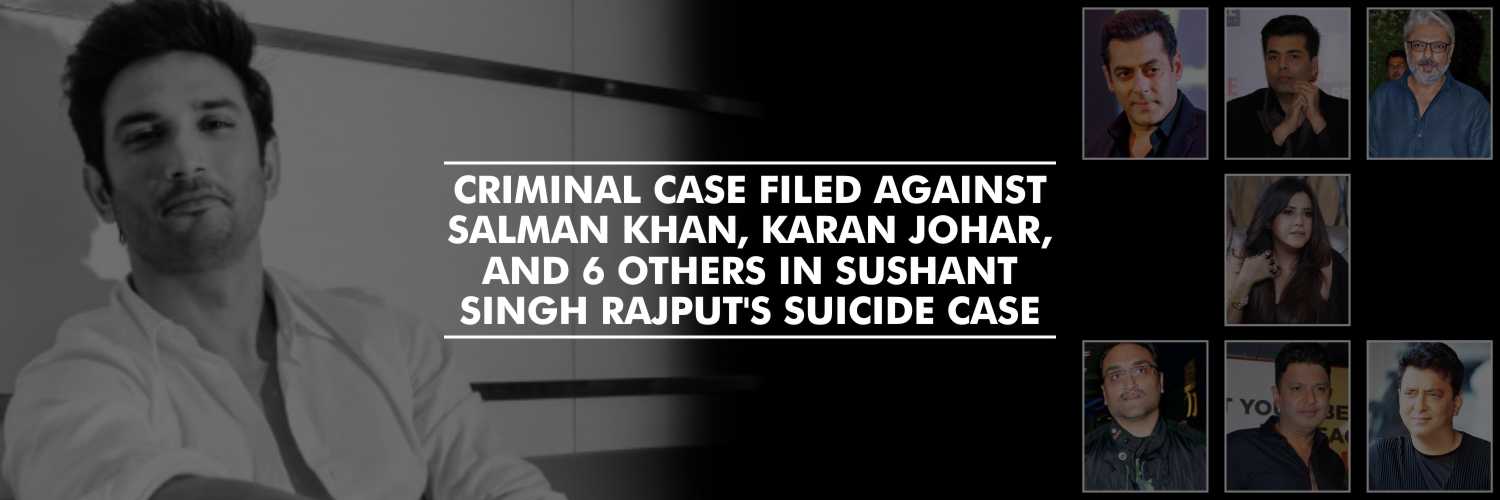In the case of Ram Kotumal Issrani v. Directorate of Enforcement and Ors., the Bombay High Court ruled against the Enforcement Directorate’s practice of recording statements late at night emphasizing the fundamental right to sleep. The petitioner alleging illegal detention and interrogation throughout the night contended that his rights were violated.
The court clarified that the petitioner was considered an accused only upon arrest and was brought before the court within the required 24 hours. It criticized the late-night interrogation directing the Enforcement Directorate to establish guidelines ensuring the protection of individuals’ basic rights including the right to sleep.
CASE DETAILS:
Ram Kotumal Issrani v. Directorate of Enforcement and Ors.
Criminal Writ Petition (Stamp) No. 15417 of 2023
Bombay High Court
Coram: Justice Revati Mohite Dere and Justice Manjusha Deshpande
BACKGROUND:
- The petitioner alleged that despite being medically unfit, he was interrogated throughout the night from 10:30 pm to 3:00 am in the office of the Enforcement Directorate (ED) violating his fundamental right to sleep.
- He claimed that his arrest and subsequent remand were illegal as he was not brought before the Special Court within 24 hours of his arrest as required by law.
- According to the petitioner, his liberty was curtailed from the moment he entered the ED office on August 7, 2023, as his mobile phone was seized and he was surrounded by officers restricting his movements.
- In response, the prosecution contended that the petitioner voluntarily attended the ED office under a lawful summons and was not detained.
- It was further argued that the petitioner was not considered an accused until his arrest and he was indeed produced before the Special Court within 24 hours.
- The prosecution further stated that the petitioner did not object to the belated recording of his statement and therefore, it was duly recorded.
OBSERVATIONS:
After reviewing the sequence of events, the court determined that the petitioner was not in custody when he appeared at the Enforcement Directorate (ED) office in response to the summons. It clarified that the petitioner was considered an accused only upon his arrest and was brought before the court within the stipulated 24-hour period accounting for travel time.
Regarding the requirement to present the petitioner before the nearest magistrate, the court explained that this provision applies when it is impractical to produce the accused before the jurisdictional magistrate within 24 hours. The court criticized the late-night interrogation of the petitioner which extended until 3:30 am. It emphasized that under Section 50 of the Prevention of Money Laundering Act (PMLA), a summoned individual may not necessarily be an accused but could be a witness or associated with the investigated offence.
Highlighting the differences between investigations under the PMLA and the Code of Criminal Procedure (CrPC), the court emphasized that statements under Section 50 should be recorded during reasonable hours respecting the individual’s right to sleep. It noted that the petitioner had previously cooperated with investigations and could have been summoned on a different day.
Ultimately, the court dismissed the petition finding no merit in the allegations of illegality in the arrest and remand. However, it directed the ED to adhere to its guidelines on recording statements setting a compliance monitoring date for September 9, 2024.
ORDER:
The Bombay High Court recently admonished the Enforcement Directorate for its habit of recording statements from individuals summoned under Section 50 of the Prevention of Money Laundering Act (PMLA) late at night. It underscored the right to sleep as a fundamental human need. A division bench comprising Justice Revati Mohite Dere and Justice Manjusha Deshpande instructed the Enforcement Directorate to establish guidelines for recording statements under Section 50 of the PMLA guaranteeing the preservation of individuals’ basic human rights.






